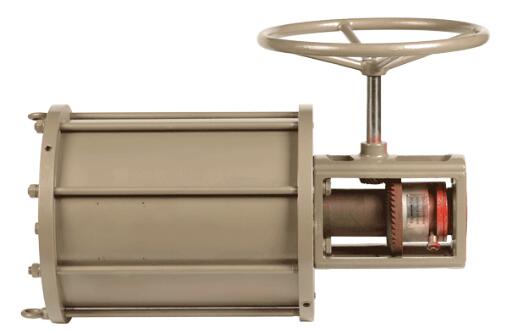How Does a Pneumatic Actuator Work?
How Does a Pneumatic Actuator Work?
In the world of automation and control systems, pneumatic actuators serve as essential components, converting compressed air into mechanical motion. Understanding the inner workings of these devices sheds light on their versatility and widespread use in various industries.

The Basics of Pneumatic Actuators
At its core, a pneumatic actuator is a device that uses compressed air to generate mechanical motion. This motion is typically linear or rotary and is harnessed to control the position of valves, dampers, or other mechanical components within a system. Pneumatic actuators find extensive use in applications where quick and precise control is essential.
Types of Pneumatic Actuators
Linear Pneumatic Actuators:
Linear actuators produce a linear or straight-line motion. The most common type is the piston-type actuator, where compressed air moves a piston inside a cylinder. As the air pressure changes, the piston extends or retracts, creating linear movement.
Rotary Pneumatic Actuators:
Rotary actuators, on the other hand, convert compressed air into rotary motion. These actuators are often used to control the opening and closing of valves or to drive rotary mechanisms in various industrial processes.
Working Principle of Pneumatic Actuators
Compressed Air Supply:
The process begins with the supply of compressed air to the pneumatic actuator. This compressed air acts as the energy source that drives the motion of the actuator.
Control Valves:
The control valves play a crucial role in regulating the flow of compressed air. By controlling the opening and closing of these valves, operators can manage the direction and magnitude of the air pressure acting on the actuator.
Conversion to Mechanical Motion:
The compressed air is directed to the actuator's chamber, where it interacts with internal components such as pistons or rotary mechanisms. The force generated by the compressed air results in mechanical motion, either linear or rotary, depending on the type of actuator.
Feedback Mechanism:
Many pneumatic systems incorporate feedback mechanisms to ensure precise control. Sensors or position indicators provide information about the actuator's position, allowing for real-time adjustments and maintaining accurate control over the system.
Advantages of Pneumatic Actuators
Speed and Response:
Pneumatic actuators are known for their rapid response times. The ability to quickly and precisely control motion makes them suitable for applications requiring fast and accurate adjustments.
Simple Design:
Pneumatic actuators have a relatively simple design, consisting of fewer components compared to some alternative actuation methods. This simplicity contributes to ease of maintenance and reliability.
High Power-to-Weight Ratio:
Pneumatic actuators boast a high power-to-weight ratio, making them suitable for applications where a compact and lightweight solution is essential.
Applications of Pneumatic Actuators
Manufacturing and Automation:
Pneumatic actuators are widely used in manufacturing and automation processes to control the movement of robotic arms, conveyors, and other mechanical components.
Valve Control:
Pneumatic actuators play a critical role in controlling the opening and closing of valves in industries such as oil and gas, chemical processing, and water treatment.
Material Handling:
In material handling systems, pneumatic actuators are employed to control the movement of grippers, clamps, and other handling devices.
Closing Thoughts
In conclusion, the working principle of pneumatic actuators involves harnessing the power of compressed air to generate mechanical motion, providing fast and precise control in various applications.
Contact Us for Pneumatic Actuator Solutions
For more information on pneumatic actuators or to connect with a reliable pneumatic actuator supplier, feel free to contact us. Our team is dedicated to providing comprehensive information and assistance to help you find the right pneumatic actuator solutions for your specific needs.



Comments
0